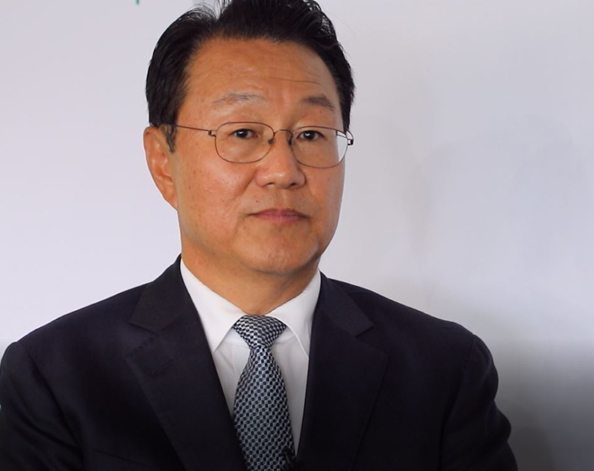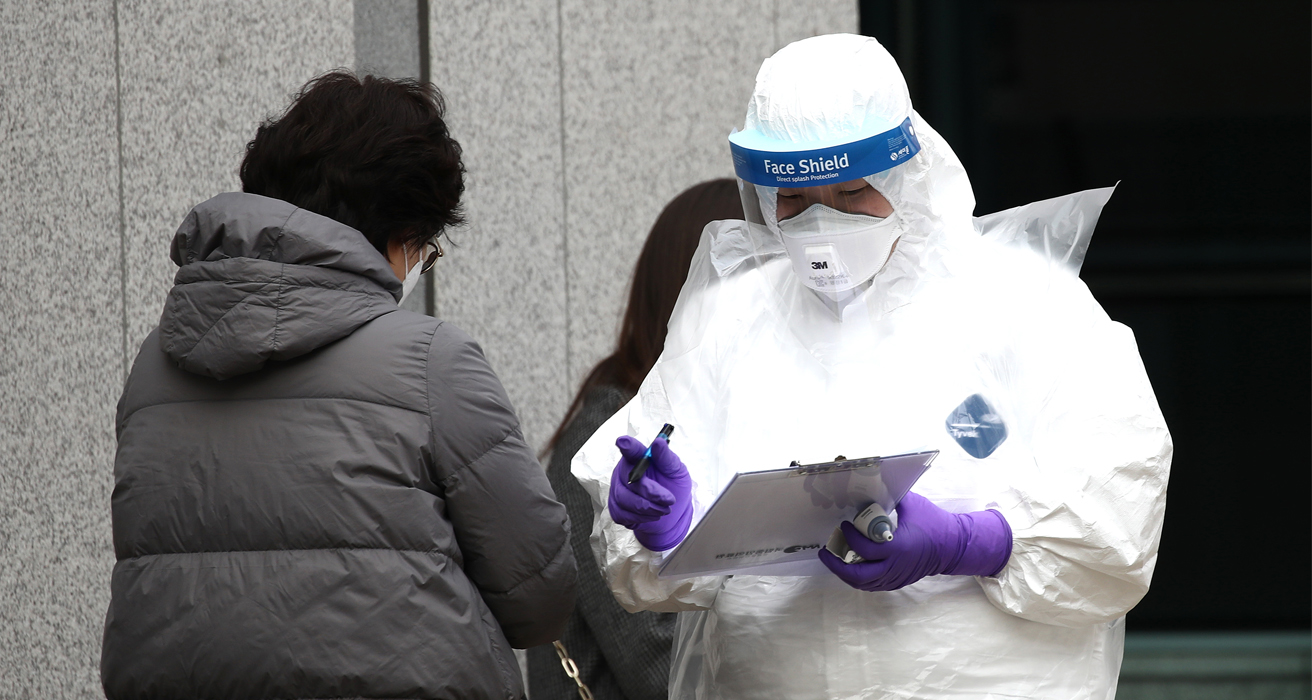Covid-19: A guide to the support available to your business
22 April 2020
Investec experts summarise government measures and outline practical steps to make your business more resilient in this turbulent time.
7 min read
Investec Focus interviewed His Excellency Dr Jong-Dae Park, Ambassador of the Republic of Korea in South Africa, on South Korea’s approach to fighting the virus, the challenges it faced and lessons for other countries.

For Korea, there was a certain degree of capacity, readiness, and know-how coming from previous experiences in place, so as not to warrant a shut down.
Q: South Korea's fight against Covid-19 has been described as “flattening the curve without shutting the economy”. How were you able to keep the economy going when so many nations were forced to shut down?
A: South Korea was hit early by Covid-19, in the second wave after it erupted and spiked in Wuhan, China. While China chose to shut down Wuhan, South Korea did not do so in any parts of the country even when Covid-19 was heavily concentrated in a particular region. It did not ban travel and flights and demonstrated how democracies can effectively handle the virus.
For Korea, there was a certain degree of capacity, readiness, and know-how coming from previous experiences in place, so as not to warrant a shut down.
The government had to find the right balance between the need to take stringent measures and need to consider people’s livelihoods and businesses, and chose to make an all-out effort to tackle the virus without shutting down the borders or economy.
What helped greatly was the volunteerism of the Korean people: everyone coming on board to help one another in times of great difficulty.
Q: What were the crucial factors that led to South Korea flattening the curve?
A: I would say the readiness and rapid response were the keys to success for South Korea. South Koreans are well known to react expediently when confronted with crisis. Most of all, Korea had already developed very advanced medical systems and services, and the public in general had got used to confronting health threats coming from overseas or a neighbouring region; like micro dust [air pollution] and yellow dust [coming from the Gobi Desert in China in Spring] requiring usage of face masks.
Moreover, Koreans learned valuable lessons from previous epidemics like the Severe Acute Respiratory Syndrome (SARS) and the Middle East Respiratory Syndrome (MERS). A whole set of measures deployed rapidly by the government and public’s active compliance made the difference. In particular, an aggressive tracking and monitoring system as well as an extraordinary number of tests done in a short time were crucial.
Q: One of our biggest concerns is the impact on small businesses and the knock-on effect of unemployment. What did South Korea do to combat this?
A: In March, the government passed a supplementary budget amounting to about $10bn which includes about $2bn for small businesses. Efforts to support medium and small businesses and the self-employed who were affected by Covid-19 are being made widely and through multiple channels in South Korea.
The measures are implemented through local governments and various public, public-private, private entities, organisations, funds, and special banks. For example, in publicly-run market complexes, the municipalities are cutting down the rents and providing financial support as well as goods such as face masks and hand-sanitisers for shop owners.
For medium and small businesses, various financial support mechanisms like a moratorium on payment of fees and taxes, provision of no or low interest financial loans, business consultation services, etc., are offered.
The good thing is that the public’s voluntary participation is manifesting in the private sector. Across the nation, landlords are lowering the rents for their business tenants, which is a rarity in other countries. This is a sign of very strong social capital in South Korea.
Q: What fiscal and monetary policy measures has the government put in place to limit the economic impact of Covid-19 on South Korea?
A: South Korea has been hit hard by Covid-19 because it curtails so many economic activities and the free movement of people. And as this is a pandemic, the impact is global. The situation will only get worse with the spread of the virus, but we need to see how it is managed worldwide in coming weeks or months to have a clearer idea of the actual impact on our economies.
Faced with an unprecedented economic shock coming from global contraction in economic activities, the government of Korea has undertaken sweeping measures to shore up the economy. On March 20, the government agreed on a $60 billion currency swap with the United States in a bid to stabilise the Korean currency.
An emergency economic cabinet meeting on 24 March introduced measures to stabilise equity and bond markets and provide financial assistance to the firms hit hardest by Covid-19. It decided to expand the emergency business relief fund to around $80 billion, and also to implement separate employment support plans, like a significant increase in financial assistance for maintaining employees and a waiver or postponement of public bills like insurance premiums and utility fees.
Q: South Korea is known to be a leader in technology – how did this help in the fight against Covid-19?
A: The fourth industrial revolution (4IR) means technological convergence of Information and Communications Technology (ICT) with other industries. In fighting Covid-19, South Korea applied a multitude of convergence technologies in three areas:
One example is technology from Korea Spatial Information & Community Co. (KSIC) that uses a geographic information system (GIS) to track confirmed patients’ movement and provide an overall situation map regarding Covid-19.
The AI platform Clova provided a voicebot service that calls up those in home quarantine who need to be monitored twice a day to check their body temperature, respiratory conditions, etc., and then e-mails the results to health centres. Also, using AI, Korea was able to drastically curtail time for developing testing kits (less than 2 weeks) and interpreting X-rays (less than 3 seconds).

Q: What were the biggest challenges South Korea has faced in this crisis?
A: The biggest challenges were faced at the early stage of the outbreak – a failure to properly account for suspected cases of certain groups of people. One example was a very large church congregation who were infected heavily due to the nature of their activities, leading to a surge in cases in a particular city/region in South Korea. Another example was a shortage of face masks, which caused much confusion and inconvenience to the public.
Other innovative measures that were newly used this time around were ‘drive-through testing’ and ‘walk-through testing’ (using an insulated booth for testing, without allowing contact with people being tested). But even with all the technology and advanced systems in place, South Korea would not have succeeded in flattening the curve fast without the voluntary compliance and cooperation of the people.
The sum up, I think there were four success factors: speed, intensity, transparency, and cooperation:
Q: Other countries are struggling to get their populations on board with the lockdown regimes. How did the South Korean government get its people to cooperate?
A: There is a saying in Korea that “crisis is opportunity”. Korea learned to come together in times of national crisis. In the West, there is also a saying that goes “desperate times call for desperate measures”. Covid-19 feels like a hammer blow on our heads; we need to come to grips with the stark reality that humans are all vulnerable and should not be complacent against the forces nature can unleash when it is disrupted by humans. So this is the time for a reality check and the reckoning of the most basic values that our humanity should adhere to.
To get all the people on board, a strong social bond or social capital is required and this could only be achieved by the government working closely with the people to earn their trust. To combat Covid-19, the Korean people once again came on board, helping and working with the government.
Q: What are the most important lessons that other countries can learn from South Korea’s fight against Covid-19?
A: The fight against Covid-19 must be waged sternly and head-on, and there is no way of getting around it with expediency. What must be done must be done, and everyone has to follow strict rules of action. In the countries where medical capacity and facilities are lacking, the need for people to exercise caution and take care of themselves in a disciplined manner is all the more necessary. Being realistic, objective and disciplined are the lessons to be learned from South Korea’s experience.
The threat of Covid-19 is such that no country in the world can be complacent about its ability to tackle it. We see confirmed cases surge in all the richest countries.
Practicing social distancing seems to be the safest measure for prevention. There should be action plans for right now and for the short-term, and mid- to long-term measures taken, and it will take years and years of continuous effort to come to a satisfactory state of preparedness.
Q: Looking into the future, what can we learn from this crisis?
A: The world has been brought to its knees by Covid-19. Amid much fanfare about the advent of 4IR and how technology has advanced exponentially, humanity is now forced to come to terms with its inherent limitations, as everyone is powerlessly locked down in their homes.
But all is not lost. These are trying times, but it can be a golden opportunity to reflect and start afresh, to embark on a ‘new’ path and get back to the basics of human and economic development.
South Korea faced the most serious adversity in the 1997 Asian financial crisis and, shockingly, it had to submit itself to IMF bailout. But South Korea was able to graduate swiftly from the bailout in just over a year. The essence of development is just two things: change and speed.
Drawing on lessons from South Korea, my advice for other countries would be do the three following things: